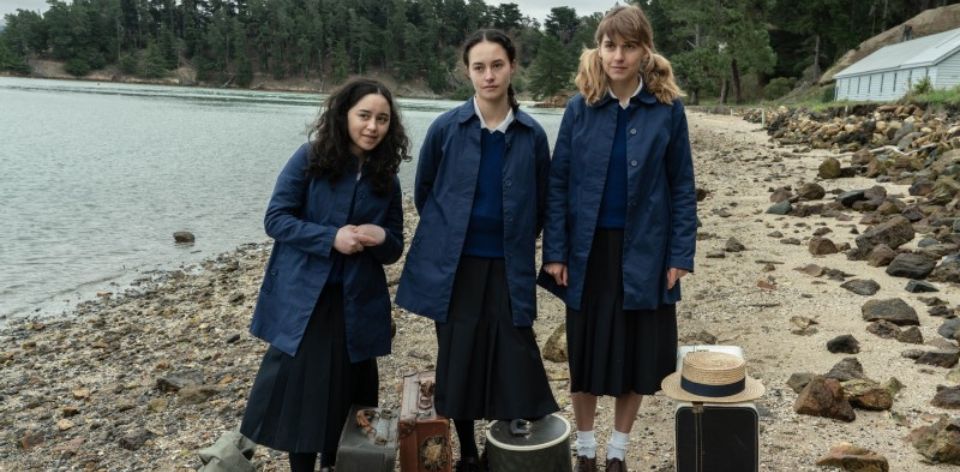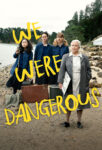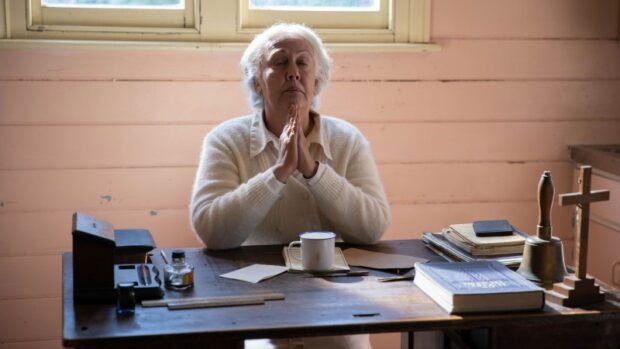New Zealand is ahead of many countries in this conversation, but the impact of colonialism on First Nations peoples remains an ongoing discussion. Although Stewart-Te Whiu’s WE WERE DANGEROUS isn’t inspired by a single story or incident, it draws on the lived experiences of many across New Zealand to explore the lasting effects of that history through institutionalisation and eugenics movements.
After an escape attempt from a girls’ juvenile institute by two Māori teens, Nellie (Erana James) and Daisy (Manaia Hall), the entire class is sent to a remote island facility. Run under the strict watch of the Matron (Rima Te Wiata), Nellie and Daisy soon begin to grow close to Lou (Nathalie Morris), who comes from a background of some privilege.
The year is 1954, and the spectre of moral panic and the Mazengarb Report (or more fully, Report of the Special Committee on Moral Delinquency in Children and Adolescents) looms large. While New Zealand only came close to introducing forced sterilisation in 1928, here screenwriter Maddie Dai also draws on the 1950s writings of eugenicist William Chapple’s The Fertility of the Unfit book. What emerges is a complex coming of age story told through the lens of these totems of control.
The colonialist attitude the film explores can almost be summed up in a single line. “It’s very difficult to redeem a girl like Nellie,” narrates the Matron. “A girl who believes there’s nothing wrong with her.” She goes on to discuss about how hard it is for Māori to lead “Christian lives” because “we learned about the Bible so late.” The internalisation of these controlling forces is precisely what this narrative is about, the imposed belief that ‘we were dangerous.’
Despite these weighty topics, Stewart-Te Whiu’s film is often disarmingly funny and hopeful. Much of this is thanks to the powerhouse performances from James, Morris and Hall (along with the incomparable Rima Te Wiata). So, when the tone shifts into something darker, it comes like a literal slap to the face, a stark reminder of the lived history that led to this film.
WE WERE DANGEROUS is imbued with a hopefulness rarely seen in this subject matter. As a result, it’s arguably a little inconsistent in the back half. Yet the taut running time allows for a laser focus on character, marking Josephine Stewart-Te Whiu as someone to watch with this impressive debut.
2024 | New Zealand | DIRECTOR: Josephine Stewart-Te Whiu | WRITERS: Maddie Dai | CAST: Rima Te Wiata, Erana James, Nathalie Morris, Manaia Hall | DISTRIBUTOR: Madman Entertainment, Melbourne International Film Festival | RUNNING TIME: 82 minutes | RELEASE DATE: 8-24 August 2024 (Melbourne International Film Festival), 22 August (New Zealand)







